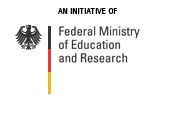Automating biotechnological processes
-
 <ic:message key='Bild vergrößern' />
<ic:message key='Bild vergrößern' />
- Automated laboratory platforms can check thousands of substances in just a few hours. The ‘AutoBio’ network is hoping that more steps in the bioprocess development can be undertaken by machines. Source: biotechnologie.de
14.08.2012 -
It can be assumed to date that it will take about five to eight years to develop a biotechnological process – a long time when compared to other industrial production processes. Bioprocesses are generally considered to be sustainable and resource-efficient, and their utilisation is becoming ever more common: some experts have predicted that in 20 years, one-third of global production will come from biotechnology processes. The Federal Ministry of Education and Research (BMBF) is hoping to drive forward this trend. The BMBF is now supporting a collaborative project ‘AutoBio’ with around €2.2 million as part of the ‘Research on the Production of Tomorrow’ framework concept. The consortium comprises five medium-sized companies as well as researchers from the TU Berlin, who have joined forces to automate sub-steps in bioprocess development.
Biotechnological processes form the basis of production for a large number of pharmaceutical products, industrial biocatalysts, and of basic and specialty chemicals. The respective catalysts are generated cost-effectively using renewable resources, and function when they are brought into the right reaction conditions. The problem here is that with a development period of five to eight years, investment costs are very high.
Robots take over cell culture supply
To shorten this development time and to reduce costs, five medium-sized companies and two academic partners have come together in the cooperative project ‘AutoBio’, which commands a total funding volume of €3.7 million, of which the Federal Ministry of Research is contributing around €2.2 million until 2015. The shared objective among the partners is to interdisciplinarily combine approaches from biotechnology, computer science, process engineering and electrical engineering, with the ultimate aim of partially automating the bioprocess development and of increasing efficiency. If all goes to plan, previously manual steps will be taken over by automated platforms, thereby optimising the processes via model-based experimental design. The frequently repetitive feed procedures (also known as a fed-batch) used in large-scale industrial processes can thus be transferred to the millilitre scale. In addition to scientific engineering issues, the early stages of development will for the first time also consider matters relating to process control and eventual upscaling.
| More on this subject on biotechnologie.de |
| Funding: Towards the next generation of biotechnology |
Cooperation with biotech specialists
This systematic approach to project progress is designed to assist in the construction of a database during product development; this can be later employed for efficient process control and regulation. In industrial process simulators, the subsequent models carry out small-scale high-throughput procedures – a process that runs in parallel over the course of the project. The network is coordinated by bioprocess engineer Peter Neubauer from the TU Berlin. Among other tasks, the TU researchers program modules for automated bioprocess development carried out by high-throughput robots, and cooperate with a range of partners in the task of database integration and the establishment of methodology. As a partner in the network, the bioprocess engineer also continues to develop his high-throughput laboratory at the TU Berlin.
Alongside the bioprocess-, measurement- and control technicians from the TU Berlin, the company Infoteam Software AG and Presens Precision Sensing GmbH are also involved in the AutoBio network. Three top biotech specialists are also on board in the form of Brain AG from Zwingenberg, BioSilta Europe GmbH, and Organobalance GmbH from Berlin. BioSilta Europe’s contribution to the project is the development of a mini-fermenter system and other culture media for bacteria and yeasts. One objective is to provide an instant media for cell culture in tablet form. Industrial biotechnology specialists Brain AG hopes to use the technologies developed by AutoBio to automate the screening of their vast metagenome and enzyme libraries. Berlin-based Organobalance GmbH is participating in AutoBio with the development of enzyme assays suitable for high-throughput analyses. Companies specialising in the identification of bioactive cultures will also be developing protocols for miniature scale process development.
More partners welcome
Brain and Organobalance have stated that they hope to demonstrate the potential of the new methods in their own products. The project is being accompanied by a board of related industrial partners. “Interested industrial partners who want to contribute either as technology providers or as prospective users of the automated processes from the AutoBio programme are invited to join the industry consortium,” stated the AutoBio network partners in a press release.
Innovative bioprocesses for the future are also the central theme of the BMBF’s ‘Next Generation of Biotechnological Procedures – Biotechnology 2020+’ funding initiative. In the context of a strategy process, the objective is to develop concepts for a more modularly structured biotechnological production for industry, as well as to promote greater integration of biological and engineering components, such as the micro-reaction modules in the latest generation of automated synthesis machines. This could open up new paths for industry to create products that do not exist today.
© biotechnologie.de/ck + pg


